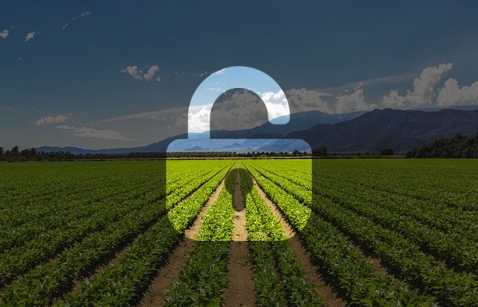Demand-driven strategies: open data for agriculture
Fecha de la noticia: 13-06-2017

The world faces a global problem of food safety and sustainability. With world population growing to levels of around ten billion by 2050, the current agricultural system is under more pressure than ever before to meet growing demand with quality food.
That is why achieving a more sustainable agriculture system is one of the challenges that have been classified as a high priority by the United Nations for the next 15 years as part of the Sustainable Development Goals. But achieving this goal will not be an easy task, since it involves much more than simple changes in productivity, and covers issues as complex and diverse as the actions needed to achieve more equitable markets, improved access to finance or the preservation of natural resources and biodiversity.
Such profound, diverse changes will only be possible if they are undertaken with a totally innovative approach that drives us to achieve those objectives. It is at this point that data comes into play. Governments and many other organizations have an enormous amount of data relevant to the agriculture sector, ranging from data on climatology and climate change to data on food price evolution, as well as other data sets as varied as land ownership, land degradation, genetic variability of seeds or availability of water resources. However, the current lack of openness of this data leads to possible innovation in this sector having been very limited so far.
By opening up data from the agriculture sector, by creating collaborative networks and preparing the appropriate data infrastructure to support it, we will be able to solve the major challenges of sustainable agriculture in three complementary ways:
• By facilitating more effective and efficient decision-making at all levels, from policy makers at the highest level to small farmers.
• By promoting innovation in a way that benefits us all through new knowledge, services and applications.
• By bringing about an internal transformation of the sector in which prime importance is given to greater transparency in food production chains.
With the aim of facing all these challenges with the greatest possible guarantees, the Open Data Agriculture Package promoted by the Open Data Charter has been created. In this guide, and starting from a participatory process for the exhaustive analysis of the needs and the demand of the sector, data sets, standards, case studies and additional resources are proposed that respond to the three previously identified key challenges:
1. Sustainable increase in agricultural production.
2. Improved production systems
3. More accessible and equitable markets.
This guide therefore constitutes a perfect example of a practical approach to the opening up of data, starting from the identification of real use cases that solve problems and concrete needs such as:
• Access to information on subsidies, agricultural policies and other restrictions.
• Planning of activities related to cultivation.
• Increased control over pests and pesticides.
• More accessible property records.
• Improvements in crop and speciality crop yields.
• New market opportunities.
• Traceability of the food chain.
• Protection against speculation in the markets.
• Fairer conditions of trade between the different agents in the chain.
Thanks to this practical approach, we will be able to see more and more success stories concerning the benefits of open data applied in the agriculture sector.











